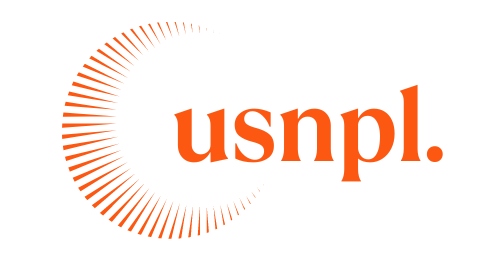Press freedom is essential for the functioning of a democracy.
Free, independent media allow the public to make informed decisions, hold leaders accountable, and hear a diversity of opinions — all free of government influence.
It is crucial to offer critical perspectives that challenge mainstream media narratives.
In an era where mainstream corporate media often dictate the news agenda, Independent media struggle against the dominance and influence of mainstream media and the spread of disinformation on social media.
That’s why we have a greater need for independent journalism in society as we have a proliferation of misinformation and disinformation.
We need critical media literacy education, so people can be in their own driver’s seat deciding how and where they get information, and they decide and determine whom to trust.
Here are ten reasons why press freedom is crucial for interreligious and intercultural dialogue.
“Without freedom of thought, there can be no such thing as wisdom – and no such thing as public liberty without freedom of speech.” – Benjamin Franklin
| The Reason | The Why |
|---|---|
| Access to Diverse Information | Press freedom provides access to a wide array of information on religious and cultural issues, enabling informed participation and dialogue. |
| Challenging Stereotypes | It allows journalists to counter stereotypes and biases, promoting empathy and respect among diverse communities. |
| Debate and Idea Exchange | Creates a space for public debate and the sharing of ideas, fostering understanding and cooperation on religious and cultural matters. |
| Enhancing Accountability | Press freedom exposes misconduct and abuse, particularly related to religious and cultural issues, promoting transparency and justice. |
| Facilitating Dialogue and Mediation | The media’s role in facilitating dialogue helps resolve conflicts arising from religious and cultural differences, advocating for peaceful solutions. |
| Promoting Human Rights | As a fundamental element of human rights, press freedom supports freedom of expression and access to information, vital for protecting rights and exposing abuses. |
| Encouraging Religious Tolerance | By promoting understanding and respect for different beliefs, press freedom combats hate speech and fosters peaceful coexistence. |
| Empowering Marginalized Groups | Gives a voice to marginalized communities, highlighting their concerns and advocating for social justice and equality. |
| Supporting Democratic Institutions | Essential for democratic governance, it enables accountability and public participation in decision-making processes. |
| Building Bridges of Understanding | Encourages cultural exchange and dialogue, fostering mutual respect and learning between people of different faiths and cultures. |

But here is the question we all ask: “Does the freedom of the press truly exist?”
The United Nations’ 1948 Universal Declaration of Human Rights says YES: “Everyone has the right to freedom of opinion and expression; this right includes freedom to hold opinions without interference, and to seek, receive, and impart information and ideas through any media regardless of frontiers.”
Did you know that The United States ranks 48th among nations for press freedom, according to Reporters Without Borders?
Since few other countries have the equivalent of the U.S. Constitution’s First Amendment, learning that it ranks below Botswana and Slovenia may come as a surprise.
But we know the freedom is in danger these days.
Why?
Check the reasons in the table under.
| Challenge | Description |
|---|---|
| Global Movement Away from Democracy | Democracies are sliding towards authoritarian practices, impacting the freedom of the press. Journalists, essential for democracy, face increasing risks when attempting to hold power to account. |
| Increased Danger to Journalists | The period from 2002 to 2012 saw a significant rise in journalist deaths, with many targeted for murder outside of combat zones. This trend highlights the growing dangers of reporting, especially in conflict areas. |
| Erosion of Press Neutrality | Since the early 2000s, the concept of neutral journalism has weakened, with journalists often seen as legitimate targets by various combatants, including terrorist groups. |
| The Rise of “Democratators” | Leaders who are elected democratically but govern autocratically use their power to suppress independent journalism. They manipulate, intimidate, and sometimes directly target journalists, effectively silencing dissent. |
| Terrorism and Targeting of Journalists | Journalists have become high-value targets for terrorist groups, leading to an increase in kidnappings and murders. This strategy aims to gain media attention and spread fear. |
| Technological Changes | The decline of traditional media and rise of digital platforms have led to fewer foreign correspondents and increased reliance on local journalists, who face greater risks without the support of large media organizations. |
| Digital Surveillance | The pervasive monitoring of digital communications has created an environment of fear among journalists, hindering their ability to report freely and protect their sources. |
| Loss of Public Trust | In many parts of the world, including the United States, the press is viewed with skepticism or outright hostility, undermining its role as a pillar of democracy and limiting its effectiveness in holding power to account. |
So much information and sources

For years, people have asked questions like: Whom do you trust? Where do we go to get information?
It’s just not that simple to answer. While we criticize the legacy press, The New York Times or The Washington Post or The Wall Street Journal or the cable outlets CNN, Fox, MSNBC, the networks, etc., we also want people to know that they’re not just in the business of peddling falsehoods constantly.
They wouldn’t be in business really, if they were.
So it’s not as if these so-called mainstream outlets only peddle nonsense and censor true information.
That makes it even more difficult because, on any given day, any of these outlets can publish breaking news, great stories, and important things that we need to know, and simultaneously also proliferate mass propaganda, half-truths, distorted information, or outright lies.
People need to learn to sift through these thousands and tens of thousands, hundreds of thousands, maybe millions of sources and things that are now available online, so they can vet them and judge them for accuracy.
Internet is Solution?

The digital age presents both opportunities and challenges for journalism, with a vast increase in independent outlets but also a struggle against the dominance and influence of mainstream media and the spread of disinformation on social media.
The key is to research on the internet. Maybe. Maybe no.
Depends on how deeply you are involved.
The easier it is to get your information, the more suspect one might be of it.
And that’s the problem you try to find a needle in a haystack.
How do you get independent, alternative voices that don’t have the budgets, that don’t have the major platforms, to get out to massive audiences without compromising integrity?
Millennials don’t have better critical thinking
There was an assumption that a Stanford study tipped on its head.
The idea was that younger people were called digital millennials or digital natives, more specifically.
And the assumption was that they were very sophisticated at navigating the digital media ecosystem.
While they may navigate it and know how to use the gadgets, the study discovered quickly that doesn’t mean younger people automatically have critical thinking skills.
And, of course, when we go and look at older demographics over 50, what we found is that those people, while they should have critical thinking skills, tended to be more creatures of habit, and they tended to go to outlets that they were used to.
They didn’t broaden their horizons. And, in fact, they may even be more subject to their own confirmation biases because they’ve been developing them for so long.
This #WorldPressFreedomDay, call on governments to end persecution of journalists and support a free and independent media. pic.twitter.com/AwWn0r0ruQ
— Human Rights Watch (@hrw) May 3, 2019
The problem of ownership

We all know it – the problem of ownership. So, we need to focus on who owns the media.
The freedom of the press belonged only to those who owned one.
And we have to look beyond the billionaire and the oligarchic class to find independent alternative information, which means we also have to be critically media literate.
For example, why a lot of environmental stories were underreported?
Because there are way too many profits being made by polluting and causing the climate crisis.
And a lot of news outlets didn’t want to bite the hand that feeds and the corporations that feed them advertising dollars.
What we’re really talking about here is how does capitalism impact public institutions, and how does capitalism impact a for-profit news media?
Well, the answer to that in a short sentence or short term is extraordinarily.
It has a lot to do with how things get covered, what’s gets covered, what people concerned at these media outlets, what they think of as being newsworthy, right?
“A free press is the unsleeping guardian of every other right that free men prize; it is the most dangerous foe of tyranny.” – Sir Winston Churchill
Who are worthy and unworthy victims?

The theme that drives our stories is about equity and social justice.
A lot of impacts of, say, environmental degradation occur disparately in communities of color and in impoverished communities.
Well, does the billionaire press cover the impact of those kind of policies?
Historically, not very well, and we have a long track record of showing how those stories weren’t covered well, and why we needed muckraking journalists, independent journalists to really shine a light in the dark places to make those stories known to the public, so the public could then demand reform through civic engagement and also, at the same time, work to democratize our purportedly free press.
“Journalism can never be silent: that is its greatest virtue and its greatest fault. It must speak, and speak immediately, while the echoes of wonder, the claims of triumph and the signs of horror are still in the air.” – Henry Anatole Grunwald.
The idea of relationships with journalists
People have become aware that how they get their information matters.
We can’t just trust sources because they’ve been around and right about something we care about.
We have to build long-term relationships with journalists, with outlets, with sources, and we have to make it really part of our daily routines.
Building relationships with journalists and media professionals can be a valuable skill for your career development, whether you want to raise your profile, promote your work, gain insights and opportunities from the media industry, or just want to know relevant news.
To protect and promote press freedom, citizens need to support independent media, advocate for policies that promote transparency and accountability, and speak out against attempts to restrict press freedom. In conclusion, the freedom of the press is essential for a healthy democracy.
So, to protect and promote press freedom, citizens need to support independent media, advocate for policies that promote transparency and accountability, and speak out against attempts to restrict press freedom.
| Strategy | Description |
|---|---|
| Strengthen International Collaboration | International bodies and democracies should collaborate more closely, offering support and protection to journalists facing repression and danger in their home countries. This can include political pressure, sanctions against those who threaten press freedom, and safe havens for at-risk journalists. |
| Legal Protections and Reforms | Countries need to enact and enforce laws that protect journalists from violence, surveillance, and undue legal challenges. Laws should also shield journalists from being forced to reveal their sources, and provide protections against SLAPP lawsuits designed to censor, intimidate, and silence critics through costly legal battles. |
| Support Independent Media Organizations | Financial and technical support for independent media outlets, especially in regions where press freedom is under threat, is crucial. This can come from governments, NGOs, and philanthropic organizations. Supporting business models that sustain independent journalism, such as subscription models or endowments, is also key. |
| Enhance Digital Security | Journalists and media organizations must prioritize digital security. Training in cybersecurity, secure communication practices, and the use of encryption should be made widely available to protect against surveillance and hacking. |
| Educate the Public on Media Literacy | Increasing public awareness about the importance of press freedom and the role of journalism in democracy is essential. Media literacy programs can help the public critically evaluate sources of information and understand the difference between reputable journalism and misinformation. |
| Create Safety Protocols for Journalists | Media organizations should develop comprehensive safety protocols for journalists working in dangerous environments. This includes training in conflict zone reporting, first aid, and digital security, as well as providing appropriate protective equipment. |
| Promote Media Solidarity | Media organizations and journalists should stand in solidarity with colleagues under threat around the world. Joint campaigns, public statements, and collective actions can draw international attention to press freedom violations and put pressure on those responsible. |
| Leverage Technology for Freedom of Expression | The development and use of technologies that circumvent censorship and surveillance can help journalists report freely, especially in countries with repressive regimes. This includes tools for anonymous browsing, secure messaging, and platforms that resist shutdowns. |
| Engage in International Legal Advocacy | Using international legal mechanisms to challenge violations of press freedom can be effective. Organizations can bring cases before human rights courts and bodies, drawing global attention to injustices and seeking legal redress. |
| Foster a Culture of Transparency | Encouraging a culture of transparency within governments and corporations can reduce corruption and abuse of power, creating a safer environment for journalists to report freely. Open government initiatives and whistleblower protections are examples of steps in this direction. |
Danger of AI
These days we hear a whole time a lot about it.
The danger is that AI-based journalism tools may provide unreliable or biased information based on unintentional errors in the data used.
Artificial intelligence (AI) has the potential to automate certain tasks that are currently done by writers and journalists, such as data-gathering, fact-checking, and even writing simple news stories.
However, for now the prevailing opinion is that it is unlikely that AI will completely replace human writers and journalists in the near future.


